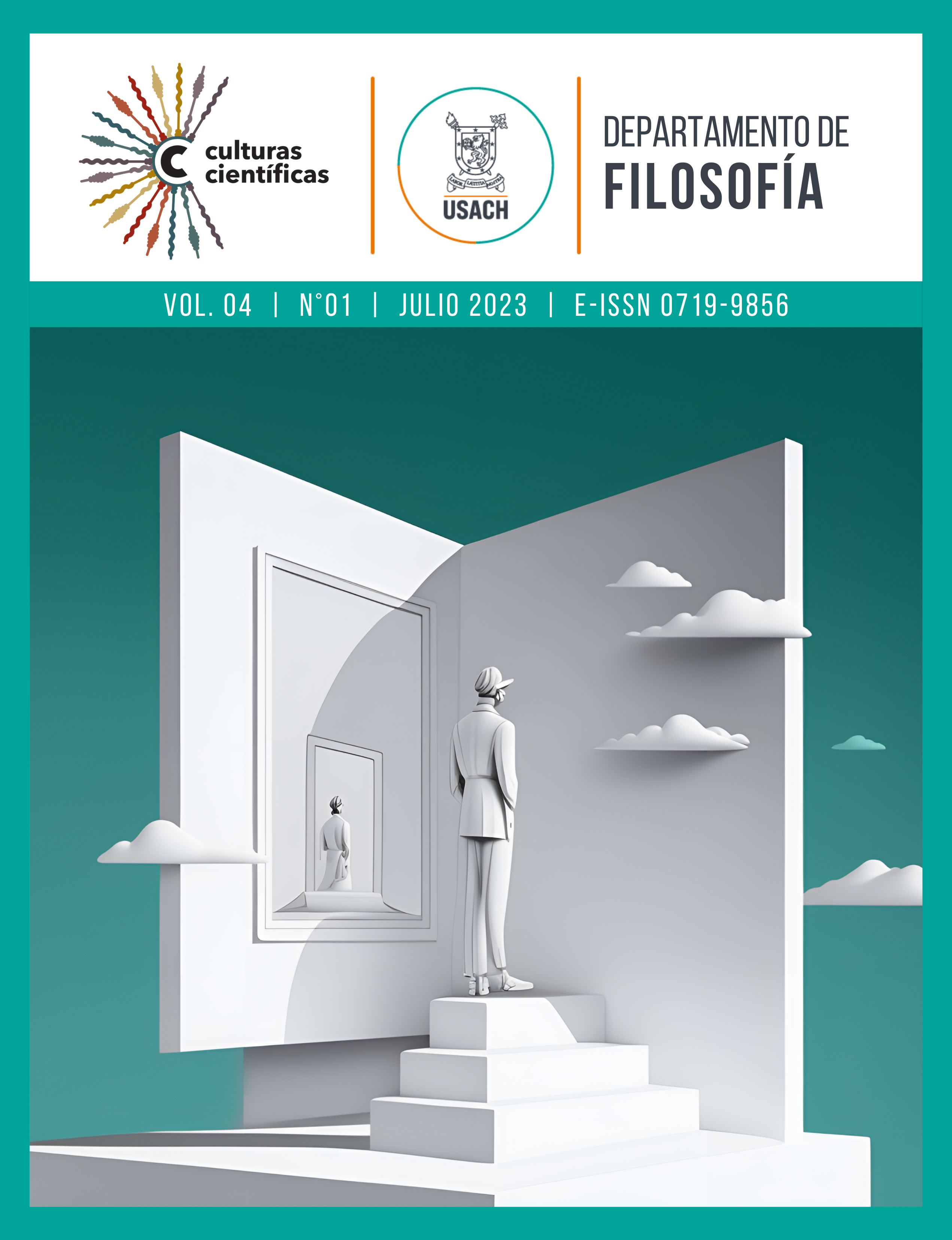Undesirable conclusions in the sciences: a pluralistic perspective
DOI:
https://doi.org/10.35588/cc.v4i1.5995Keywords:
extra epistemic values, scientific pluralism, undesirable conclusions, extra epistemic values, scientific pluralism, undesirable conclusionsAbstract
The present work seeks to address, within the context of the debate around the influence of extra-epistemic values in the sciences, the problem regarding certain scientific investigations that could contain undesirable conclusions, in the sense that their content could affect certain social groups. Following the reasoning of the pluralist philosopher Philip Kitcher, the discussion is situated around the renunciation of the search for certain truths, when these may conflict with certain moral, political or social values that we are not willing to transgress. In this line, emphasis is placed on the influence of moral considerations that can influence our judgment about the truths that describe the world, as well as on the moral dimension of human action that turns out to be an inalienable aspect, which is entirely applicable to scientific activity.
Downloads
References
Anderson, E. (1995). Feminist Epistemology: And Interpretation and a Defense. Hypatia, Summer, 1995, Vol. 10, No. 3, Analytic Feminism (Summer, 1995); pp. 50-84. https://doi.org/10.1111/j.1527-2001.1995.tb00737.x
Brown, Matthew J. (2017). Against Epistemic Priority. En Elliot, Kevin C.; Steel, Daniel (ed.): Current Controversies in Values and Science. Routledge, pp. 64-78. https://doi.org/10.4324/9781315639420
Douglas, H. (2009). Science, policy, and the value-free ideal. University of Pittsburgh Press. https://doi.org/10.2307/j.ctt6wrc78
Elgin, C. (1996). The Relativity of Fact and the Objectivity of Value. The Harvard Review of Philosophy, Volume 6, Issue 1, Spring 1996, pp. 4-15. https://doi.org/10.5840/harvardreview1996611
Ferrajoli, L. (2004). Derechos y garantías La ley del más débil. Trotta.
Hume, D. (1740/1984). Tratado de la naturaleza humana. Ediciones Orbis.
Hoekzema, E., Barba-Müller, E., Pozzobon, C. et al (2017). Pregnancy leads to long-lasting changes in human brain structure. Nature Neuroscience 20, 287–296. https://doi.org/10.1038/nn.4458
Kitcher, P. (2001). Science, Truth, and Democracy. Oxford University Press. https://doi.org/10.1093/0195145836.001.0001
Kincaid, Harold; Dupré, John & Wylie, Alison (Eds.) (2007). Value-Free Science? Ideals and Illusions. Oxford University Press. https://doi.org/10.1093/acprof:oso/9780195308969.001.0001
Lekka-Kowalik, A. (2010). Why Science cannot be Value-Free. Understanding the Rationality and Responsibility of Science. Sci Eng Ethics 16, pp. 33–41. https://doi.org/10.1007/s11948-009-9128-3
Longino, H. (1990). Science as Social Knowledge. Princeton University Press. https://doi.org/10.2307/j.ctvx5wbfz
Lacey, H. (2017). Distinguishing Between Cognitive and Social Values. En Elliot, Kevin C.; Steel, Daniel (ed.): Current Controversies in Values and Science. Routledge, pp. 64-78. https://doi.org/10.4324/9781315639420
MacIntyre, A. (1959). “Hume on "Is" and "Ought"”. The Philosophical Review, Vol. 68, No. 4 (Oct., 1959), pp. 451-468. https://doi.org/10.2307/2182491
MacIntyre, A. (2009). Tras la virtud. 5ta edición. Editorial Crítica.
Moore, G. E. (1903/1993). Principia Ethica. Cambridge University Press.
Organización de las Naciones Unidas para la Educación, la Ciencia y la Cultura. (1950). La cuestión racial. París, Francia: UNESCO. Disponible en línea https://unesdoc.unesco.org/ark:/48223/pf0000128289 (consultado con fecha 29-05-2023).
Putnam, H. (1975). Mathematics, Matter and Method: Philosophical Papers, Volume 1. Cambridge University Press. https://doi.org/10.1017/CBO9780511625268
Steel, D. (2017). Qualified Epistemic Priority Comparing Two Approaches to Values in Science. En Elliot, Kevin C.; Steel, Daniel (ed.): Current Controversies in Values and Science. Routledge, pp. 49-63. https://doi.org/10.4324/9781315639420
Steel, D.; Whyte, K. (2012). Environmental Justice, Values, and Scientific Expertise. Kennedy Institute of Ethics Journal 22: 163–182. https://doi.org/10.1353/KEN.2012.0010
Downloads
Submitted
2023-03-14Published
Issue
Section
License
Copyright (c) 2023 Paulo Javier Olivares Díaz

This work is licensed under a Creative Commons Attribution 4.0 International License.











